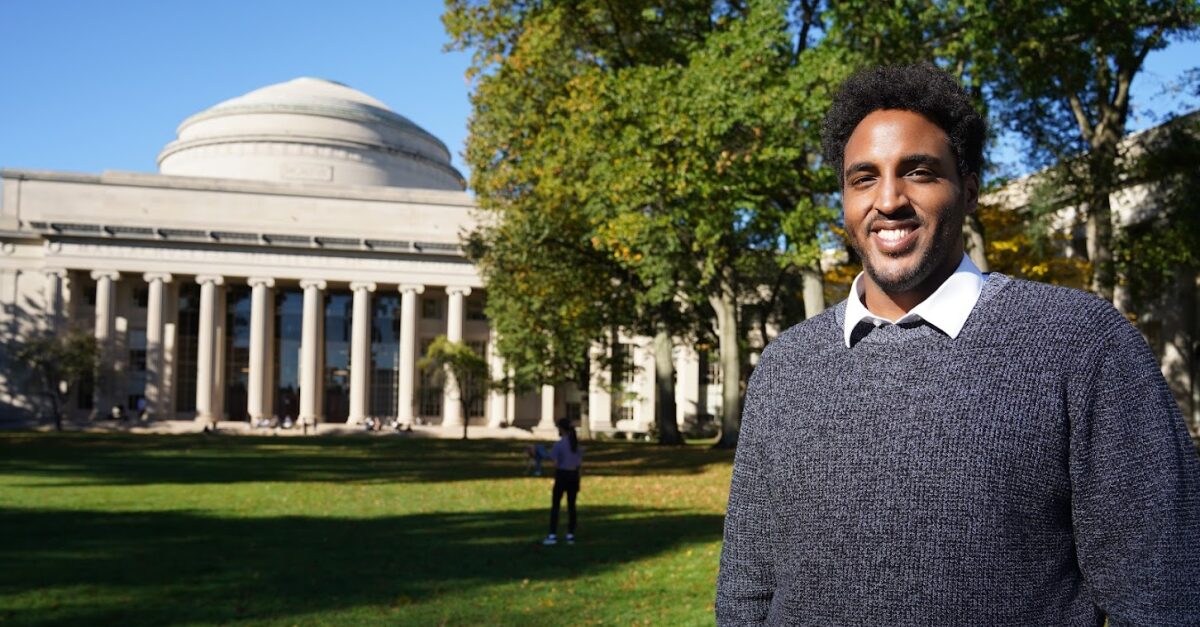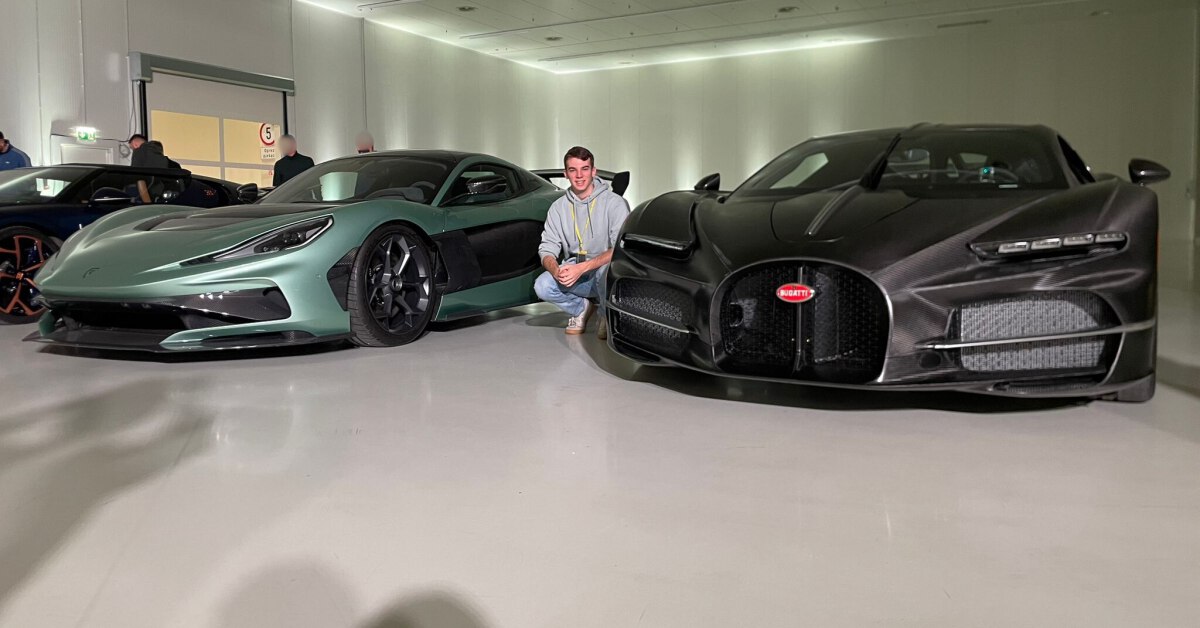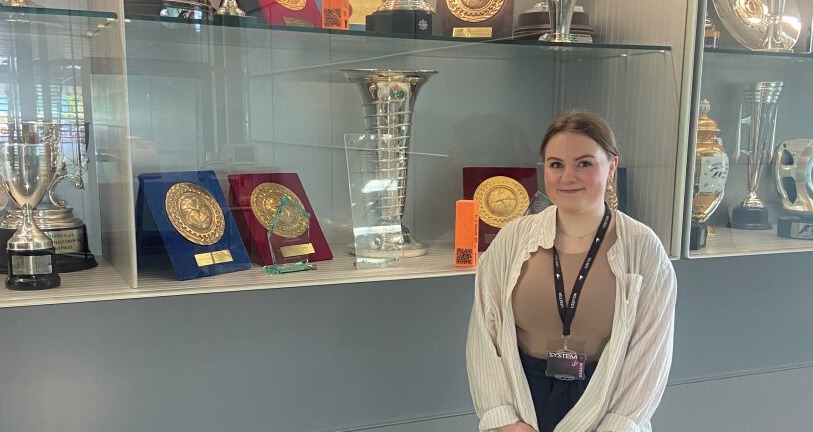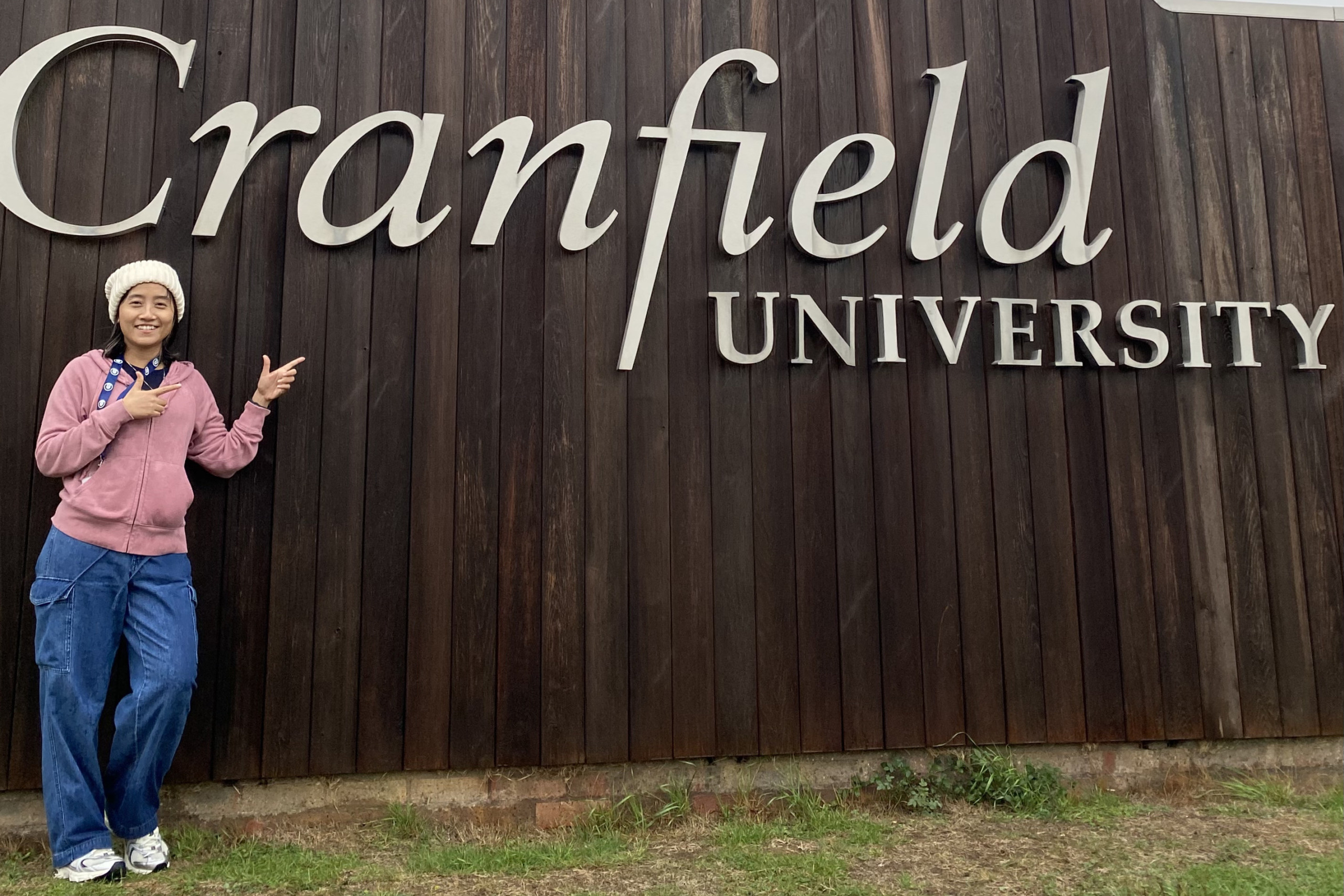Autonomous Vehicle Dynamics and Control (AVDC) MSc alumnus Johannes Autenrieb on his exciting career in aerospace
05/11/2024

Johannes Autenrieb is a Research Scientist at the German Aerospace Center (DLR). He graduated from Cranfield University with an MSc in Autonomous Vehicle Dynamics and Control (AVDC). Here, Johannes reflects upon his time at Cranfield and talks about his exciting career in the aerospace industry, as well as the continuation of his studies.
What sparked your interest in the aerospace industry?
Interestingly, during high school, I was initially drawn to politics and history, considering a career in those areas. However, I had some very enthusiastic teachers who were passionate about engineering. They introduced us to exciting engineering projects and let us participate in youth science competitions. One teacher in particular, who was a private pilot, gave us the opportunity to experience flight in a small aircraft. This firsthand exposure to aviation sparked my interest in the aerospace industry and led me to reconsider my career path, ultimately leading me to enroll in an aerospace programme.
Why did you choose the Autonomous Vehicle Dynamics and Control (AVDC) MSc?
After completing my bachelor’s degree, I visited the Aerospace Systems & Control Lab at KAIST in Daejeon, South Korea, where I worked on control-related simulations for unmanned aerial vehicles, particularly for VTOL systems in urban airspace. This was my first experience working with autonomous systems in the context of aerospace, and I found it fascinating, which motivated me to focus on this field.
Following discussions with experienced researchers, I was referred to the AVDC MSc programme at Cranfield University. It was unique in Europe at the time for its focus on autonomous vehicle technologies. The programme’s emphasis on hands-on projects and close industry connections, combined with Cranfield’s strong reputation in aerospace, made it an ideal choice for my career aspirations. The opportunity to engage in cutting-edge research and solve real-world problems confirmed my decision to pursue this MSc.
How did you find the course? What were the highlights?
I found the course both challenging and rewarding. One of the most valuable aspects was the privilege of working closely with experienced experts and researchers from both academia and industry. The collaborative environment at Cranfield, with its diverse faculty and student body, provided constant inspiration. We were encouraged not only to understand the theory but also to tackle complex, real-world problems through hands-on projects and assignments. The support we received, whether financial, supervisory, or advisory, further enriched the experience and made it highly productive.
There were several highlights during my time at Cranfield. One was participating in the BAE Swarm Challenge, a competition where multiple universities from the UK competed against each other. Our group developed a working swarm of drones to solve the problems posed by the competition. It was a challenging project that involved different fields, such as guidance and control, multi-agent coordination, sensor fusion, and drone design. Our efforts culminated in winning the group award for the best UAV design.
Another key highlight was my final project, where I worked with experts from Rolls-Royce to develop a neural network-supported nonlinear flight control system for an air taxi with a tilt-wing concept. This project nurtured my curiosity and has been instrumental in shaping my ongoing research in control systems.
What has been your career path since graduating?
After graduating, I began working as a research scientist at the German Aerospace Center (DLR), where I focus on the development of nonlinear guidance and control algorithms for aerospace systems in both the civil and military sectors. A significant part of my work involves designing advanced control systems for hypersonic flight systems. We address complex guidance challenges due to high model uncertainties of the flight vehicle. In particular, this includes cases where the mathematical models of the dynamic systems are not well understood or where faults or defects occur during the mission, requiring robust and intelligent control solutions.
Alongside this, I’m pursuing a PhD in collaboration with the Technical University of Braunschweig. This has provided me with the opportunity to work on more theoretical aspects of control systems, particularly in the context of adaptive control and online optimisation. Not only has this allowed me to contribute to the theory in these areas, but it has also given me the chance to gain international experience as a visiting PhD student at both MIT and the University of Oxford. During these visits, I worked with leading experts on safety-critical control systems and optimisation algorithms, further expanding my expertise.
You currently work as a Research Scientist at the German Aerospace Center (DLR). Can you tell us more about your role?
In my role at DLR, I’m primarily focused on the nonlinear guidance and control of hypersonic missile systems. The German Aerospace Center is the national centre for aerospace research and innovation in Germany, and its mission is to advance aerospace technologies and bridge the gap between theoretical work in academia and practical applications in the field.
Within this framework, my group’s goal is to tackle real-world control problems while advancing state-of-the-art control theory. We work closely with industrial and governmental partners, advising them on technical challenges and strategic applications, particularly in the area of hypersonic technologies. Additionally, I collaborate with undergraduate and graduate students, both through lectures and on projects. Working with young, aspiring engineers is a rewarding experience, as I get to help them nurture their curiosity and develop their skills in addressing complex aerospace problems.
What does a typical week look like for you?
A typical week for me is a mix of hands-on work, research, and collaboration. I spend a significant amount of time verifying and validating new control algorithms for the aerospace systems I’m working on. This involves simulations and testing to ensure the algorithms meet performance criteria. I also focus on theoretical research, staying up to date by reading the latest papers and tracking the evolving state of the art in control applications.
Currently, I’m working on two major projects: guidance control of hypersonic vehicles and cooperative guidance schemes for novel aerospace systems. I regularly share results with colleagues, discuss improvements, and identify gaps in the existing research. In addition, I contribute to the aerospace community by presenting our work at conferences and meetings, and by publishing papers and articles. This allows us to share our results with others in the field, helping to push the technological level forward and contribute to the overall advancement of aerospace research.
Teaching and mentoring are also important parts of my week. I work with students, guiding them through complex aerospace problems and helping them develop their skills. Overall, my weeks are a balance of research, practical work, and contributing to the broader aerospace community.
What would you say to someone who wants to work in the aerospace industry?
I would say that curiosity and persistence are key. The aerospace industry is constantly evolving, and it requires a passion for learning and adapting to new challenges. Building a solid foundation in both the theoretical and practical aspects of engineering is essential, as is networking with professionals in the field. Gaining hands-on experience through internships and projects is also invaluable. The aerospace field is incredibly rewarding for those who are excited by innovation and complex problem-solving.
What do you think the future holds for the aerospace industry?
I think the future of the aerospace industry is incredibly exciting, with significant advancements in urban air mobility, autonomous systems, hypersonic technologies, and sustainable aerospace solutions on the horizon. The integration of artificial intelligence and advanced control systems will revolutionize how we approach both civil and defense applications. These developments will push the boundaries of what’s possible, from more efficient autonomous aircraft to breakthroughs in hypersonic flight and sustainable technologies.
There are plenty of opportunities ahead, as well as challenges to overcome, making this an excellent time to be part of the aerospace industry. For anyone passionate about innovation and cutting-edge technology, aerospace offers a rewarding and dynamic career path. The future looks bright, and I’m confident the industry will continue to evolve in ways that will shape the world’s transportation and defense systems for years to come.
What else should we know about you?
Having been fortunate to receive guidance from great mentors and senior researchers throughout my career, I’m always happy to support other students in their undergraduate and graduate studies. Whether you’re interested in the aerospace field, control theory, or their applications, please don’t hesitate to contact me with any questions. I also offer opportunities for internships and student projects, allowing students to visit the German Aerospace Center (DLR) in Braunschweig, where I am currently working. Feel free to reach out to me at johannes.autenrieb@dlr.de.
Categories & Tags:
Leave a comment on this post:
You might also like…
Automotive Engineering: From student to hypercar innovation at Rimac
We sat down with recent graduate Thomas Perrin, to discuss how his year on the MSc in Automotive Engineering at Cranfield University propelled him from the lecture hall directly into the ...
What this year at Cranfield really meant to me
Every Cranfield journey is unique. In this alumni reflection, Zachea Scicluna shares what her year at Cranfield truly meant, from facing uncertainty to gaining hands-on experience in industry-backed projects. I’ve been reflecting (and delaying) ...
Preparing for assignments and exams?
Sorry! We know it seems a bit mean to mention the exams in January rather than looking forward to the break before it! However, we know many of you will be thinking about your forthcoming ...
Screening for FTSE 100 companies on Bloomberg
So you’re researching an index and need some data on its constituent companies? Bloomberg’s Equity Screening tool makes light work of this, not just for the FTSE, but for indices, exchanges and sectors worldwide. Type EQS ...
Accelerating my future: How Cranfield put me on the fast track to automotive safety innovation
Hello! I’m Michaela Kaiser, and I’m thrilled to share my journey studying abroad. I’m from Calgary, Canada, and I recently graduated from Cranfield’s MSc Automotive Engineering course. My path to Cranfield ...
From Myanmar to Cranfield: My path to Renewable Energy
As someone who is passionate about sustainability, my career goal is to build a path in the renewable energy sector. My aspirations comes from the benefits of developing sustainable energy sources and ensuring energy ...








